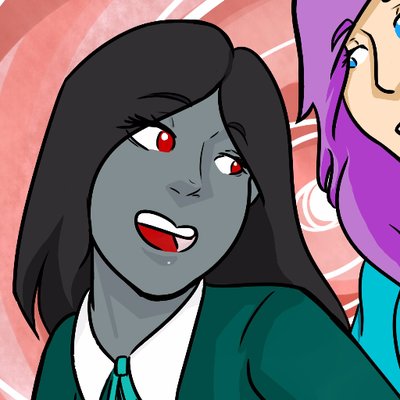The Mystery Contract
Sometimes I wonder if we should have just torn up the paper as soon as he said it wasn't his. We could've been done with all of it.— Kurs, exasperated upon hearing the tale AGAIN
When running an assassins guild, there is oft the lingering uncertainty in the words of some contracts. Placed by those in the throes of passion or those desperate to make a difference, these contracts demanding death are penned in shaky hand, and call for murder when no strong motivation necessarily exists for the writer.

Rita Lukošienė by Hanhula (via Midjourney)
These cases are many, and
the Jurisaudra most often seek further information - and give time for regret to sink in - before taking them on. It's hard to take back an assassination, after all; resurrection magic is expensive and doesn't always work.
This is not one of those, though it certainly seems to be on the surface. The contract beginning with the ever-so-iconic 'My Dearest Sleetiepie' is a fantastic impression of an impassioned plea to a lover, demonstrating a strong understanding of the subtly-coded text used by the
Jurisaudra. It calls for the murder of a well-known Hvalgoran socialite and artist, Rita Lukošienė, and is - to the bemusement of the assassins that received it - indicated to be from Lukošienė's own beau.
At the time it was received, Aleksandar Miletić was the beau in question. He was a well-known ex-soldier who served honourably in the Hvalgoran navy, and retired after a career-ending wound took out one of his arms. He'd been working in law for years, by this point. A good man, by all accounts.
The contract - at first glance, and second and third as well - appeared to be from him. It was on the letterhead exclusive to his office, it held his signature - which was especially notable, as Miletić was known for signing documents with the remnants of his left arm - and was entirely in his handwriting.

Aleksandar Miletić by Hanhula (via Midjourney)
Yet it was not from Miletić. And despite all the flowery text in the document, there was no motive - at all. Not even a hint of anger or jealousy, no matter how many times she danced with other men. By every measure that could be, well, measured, he loved and cared for her.
The words were his. The spelling, the phrasing, even the
paper was his. When a pair of Jurisaudra assassins cornered Miletić in the dead of night, no-one else around to watch them and protections against
divination raised, he sputtered and insisted that it had not been him, that he loved Lukošienė, that he could not bear to see her in pain, let alone assassinated.
He volunteered to take truth serum, if need be, to prove his truth; when they produced some, his words did indeed prove true.
Therein lay the mystery: who had placed the hit on Lukošienė's head, and why?
Solving the Mystery
Obsessive types are a special sort, but rarely are they so skilled at hiding in plain sight. Surely someone's seen them deliver the contracts.— frustrated Jurisaudra assassin
When contracts go awry, they must be reported to the higher-ups of the Jurisaudra. The
Zaivodai, who oversee the assassins, were not impressed to find that someone had attempted to play with their use. They sent the original contract to their investigatory labs, and prepared a small strike team to deal with the perpetrator if necessary. Ordering death under cover of lies? That wasn't acceptable. Either it was a foolish joke, a serious misinterpretation of what the Jurisaudra was, or the sort of malicious work that the Jurisaudra stood against.

Contract after Contract by Hanhula (via Midjourney)
Weeks of analysis followed, during which the same contract reappeared again, and again, and again. Whoever the perpetrator was was insistent on the woman's death, and practically flooded the Jurisaudra's postboxes with variants on the same flowery wording that had set out the first contract's terms. Sometimes they were not signed with Miletić's name, but never did any man who signed the contract seem to be the legitimate writer.
The analysis never seemed to come back with anything relevant, though. At most, there were a few paint spatters on some of the contracts that seemed to indicate an artist's involvement, but thorough questioning of just about every artist in
Vredekur and its surrounds came back with naught. The Zaivodai grew irritated, and joined in the hunt themselves - to no avail.
Finally, when the Boltwarden returned from a lengthy trip to the far west of
Sárezket, the Zaivodai turned to their leader in irritation.
Rimantas Kurs took all of three days to examine the swathes of evidence, so great in amount was it by this point.
The case had gotten so ridiculous that it had breached the bounds of the Jurisaudra's secrecy; those they'd questioned had spoken to others, and now the entire city was abuzz with news.

End Her End Her End Her by Hanhula (via Midjourney)
Even Lukošienė herself now knew of the attempted contract, and - in addition to hiring better security and cancelling her appearances at balls for a time - seemed genuinely intrigued by the fool who wanted her dead so badly.
One does not get appointed to the role of
Zaiseva Boltwarden for a
small amount of skill. Four days into his own investigation, three of those spent reviewing evidence, and Kurs found himself standing in the room with his prime suspect, his arms crossed.
The Truth Comes Out
I don't think I've ever actually heard anyone guess the right answer to this one. Go on, before they keep telling you the tale. What kind of villain could possibly be doing this? Take a second to guess.— Kurs

Copycat by Hanhula (via Midjourney)
An obsession with the death of one woman. Handwriting that perfectly mimicked that of others, and hundreds of impeccable contracts all penned without mistakes. Despite the amount of contracts, no sightings of their sender. Despite the caution taken with each and every one, there was still
paint of all things on a few contracts. And they'd ruled out all the artists - including Lukošienė, who was reasonably good at art herself.
As an experienced adventurer, Kurs had heard of beings possible of this malevolence, but only one seemed to fit the bill at the moment: a constructed being of paint, able to not only hide within art but also to take on the shapes of others.
While sentient paintings able to step free of their frames are known as
trompe l'oeil, this one was more than just that. This was a
Changeant Trompe-l'œil - a sentient painting that not only possessed the intelligence and appearance of a living person, but also one that possessed the ability to shift into those it had taken something from.
The greater intelligence and power provided to these altered paintings was usually from their possession by a greater spirit, one that would then be warped by the memories of the shape it inhabited, memories inscribed by the painter unknowingly.
With that warping came an obsessive need to replace the original, to see the original dead so that the painting could be the
real one. The real Lukošienė, in this case.

Obsession's End by Hanhula (via Midjourney)
As it would turn out, Lukošienė had painted a vision of herself with the assistance of her two sisters, and it had been left to sit near a number of Lukošienė's more magical artifacts.
Over time, it had absorbed their latent power and gained sentience, and had carefully bided its time until this second Lukošienė had an entirely different sense of self from the first. Kurs found faux-Lukošienė in a hidden section of attic near her frame, the floor utterly covered with contracts and inkstains. They spoke but briefly. Kurs could not in good conscience let the painting live, not with its antics - and sanity - rapidly slipping away.
The fight was short but destructive: when the false Lukošienė realised she would lose, she produced a flame. With the oil that made up her body, the paints around the attic, and the paper covering the floor, the place exploded into an inferno. Kurs escaped with a few singe marks. Lukošienė's house was not so lucky, and the Jurisaudra's presence nearby narrowly averted widespread destruction as the fire attempted to spread across the city.
And so it ended. Lukošienė moved on with her life, eventually accepting Miletić's proposal, the Jurisaudra added information on sentient paintings to their library, and Kurs developed a hatred for the story after the fiftieth time it was told in his presence alone.














We, uh, should maybe make dealing with the Licia Painting more of a priority...
you'd have to find her first :)
welcome to my signature! check out istralar!